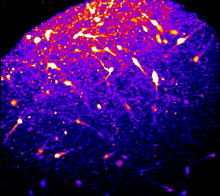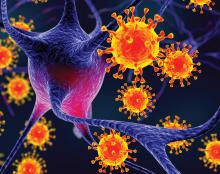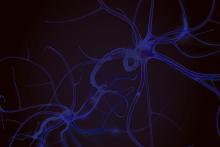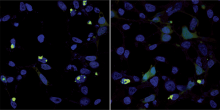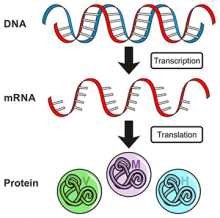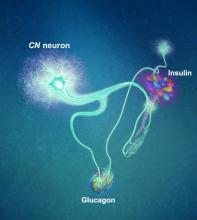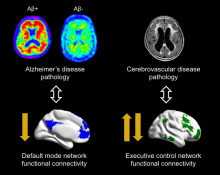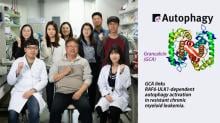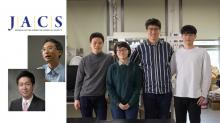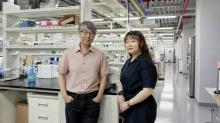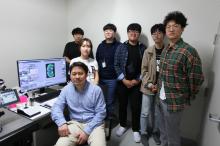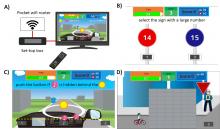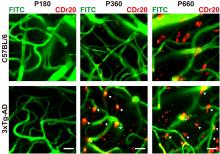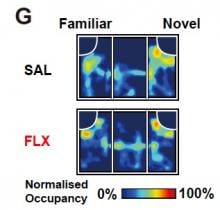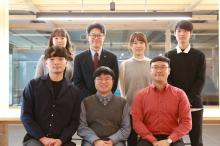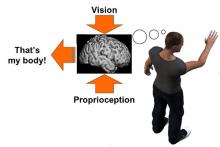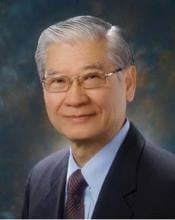Brain
News
13 Jan 2020
A hyperactive gene response to Japanese encephalitis virus infection ultimately leads to brain inflammation.
12 Jan 2020
The drugs helped mice and humans recall long-term object memories.
10 Jan 2020
An implantable device has the potential to revolutionize how neuroscientists study the brain and treat diseases.
09 Jan 2020
A small molecule could hold the key to tackling the protein build-up in nerve cells that occurs in several devastating neurological disorders.
08 Jan 2020
Much-needed insight into raising young children with autism in Malaysia highlights the need to improve local research, awareness, acceptance and support services.
08 Jan 2020
New findings could lead the way towards treatments for intellectual disability in Down syndrome.
20 Dec 2019
Over 70% of rare disease patients and non-patients are aware of the patient registry but the participation rate accounted for less than 30%, according to a recent survey of the public’s acknowledgement of and participation in the rare disease patient registry.
28 Nov 2019
Despite great investments, an effective drug-based treatment for Alzheimer’s disease, the most common form of dementia among the elderly, remains elusive. Scientists led by Duke-NUS Medical School, in collaboration with Monash University, have published an online atlas of gene expressions at single-cell level in Alzheimer’s disease brains, aiming to boost to efforts to identify gene targets for drug development.
23 Oct 2019
When a fly eats sugar, a single brain cell sends simultaneous messages to stimulate one hormone and inhibit another to control glucose levels in the body. Further research into this control system with remarkable precision could shed light on the neural mechanisms of diabetes and obesity in humans.

26 Sep 2019
Hokkaido University researchers have shown how chronic pain leads to suppression of the brain reward system.
19 Sep 2019
Professor Eun-Kyoung Kim’s team in the Department of Brain and Cognitive Sciences discovered the mechanism underlying the regulation of energy metabolism by hypothalamic tanycyte. Proposed a new research direction to develop an enhanced obesity treatment.
17 Sep 2019
Differential changes in brain functional network connectivity in people with mild cognitive impairment may aid early tracking of Alzheimer’s disease and cerebrovascular disease.
12 Sep 2019
A recent study led by researchers from the National University of Singapore revealed that regular tea drinkers have better organised brain regions compared to non-tea drinkers.
27 Aug 2019
An international team of researchers, affilated with UNIST has identified a new gene that causes drug resistance against Novartis’s breakthrough cancer drug, Gleevec (Active ingredient: imatinib).
27 Aug 2019
A recent study, affiliated with South Korea's Ulsan National Institute of Science and Technology (UNIST) has demonstrated new solvent-free, single lithium-ion conducting COF.
16 Aug 2019
The protein that revives injured nerve cells was discovered. It is expected to present a new direction in the development of therapeutic agents for regenerating damaged brain or spinal cord nerves.
09 Aug 2019
Chronic stress induces autophagic death of adult hippocampal neural stem cells (NSCs). Expected to offer new opportunities for development of early treatment options for stress-associated brain diseases.
12 Jul 2019
As people age, the way different areas of their brain communicate with one another change, affecting thought processes and attention span.
18 Jun 2019
Researchers in Singapore have discovered the mechanism behind how neural stem cells in fruit flies are activated to stimulate the generation of new brain cells.
24 May 2019
A research team in South Korea has clarified the expression of antidepressant efficacy by modulating hippocampal mossy cells. It is expected to provide a basis to understand the mechanism of existing anti-depressants and contribute greatly to the development of next generation depression treatment.
21 May 2019
Researchers at Tohoku University have developed a new cognitive training game aimed at improving road safety among elderly drivers. The game, "Cognitive Training for Car Driving" (CTCD), requires only a set top box and a TV, and for users to play it regularly.
02 May 2019
Researchers in South Korea and Singapore have, for the first time, developed a chemical probe that enables live-imaging of a type of immune cells in the brain, known as microglia, in a live animal brain.
30 Apr 2019
Exposure to antidepressants in the womb leads to autistic-like behaviour in full-grown offspring in an animal model, according to a new study led by Duke-NUS Medical School.

10 Apr 2019
Designated as a KELAF and held signboard hanging ceremony as organized by the Ministry of Drug and Food Safety. To lay the foundation for advanced bio research by securing the reliability and ethicality of animal experiments
09 Apr 2019
Research achievement through an Undergraduate Group Research Program (UGRP) was published in an international scientific journal. The finding is expected to lay a foundation for the development of a new personality test method that can complement the existing psychology test.
05 Apr 2019
Our brain tells us where parts of the body are in space. We know without looking if our arm is in the air, our foot is in front of the other or beside it. It is called proprioception or body localization and helps us locate our body parts.
28 Mar 2019
A scholar from Hong Kong Baptist University (HKBU) (HKBU) has developed a new series of games which can be used to train and test children’s reading, writing and word identification skills at an early age.
26 Mar 2019
Researchers identify a part of the brain that helps execute cooperative tasks.
Events
Sorry, no events coming up for this topic.
Researchers
Sorry, no researchers coming up for this topic.
Giants in history
David T. Wong (born 1936) is a Hong Kong-born American neuroscientist who is best known for discovering the antidepressant drug fluoxetine, better known as Prozac.


